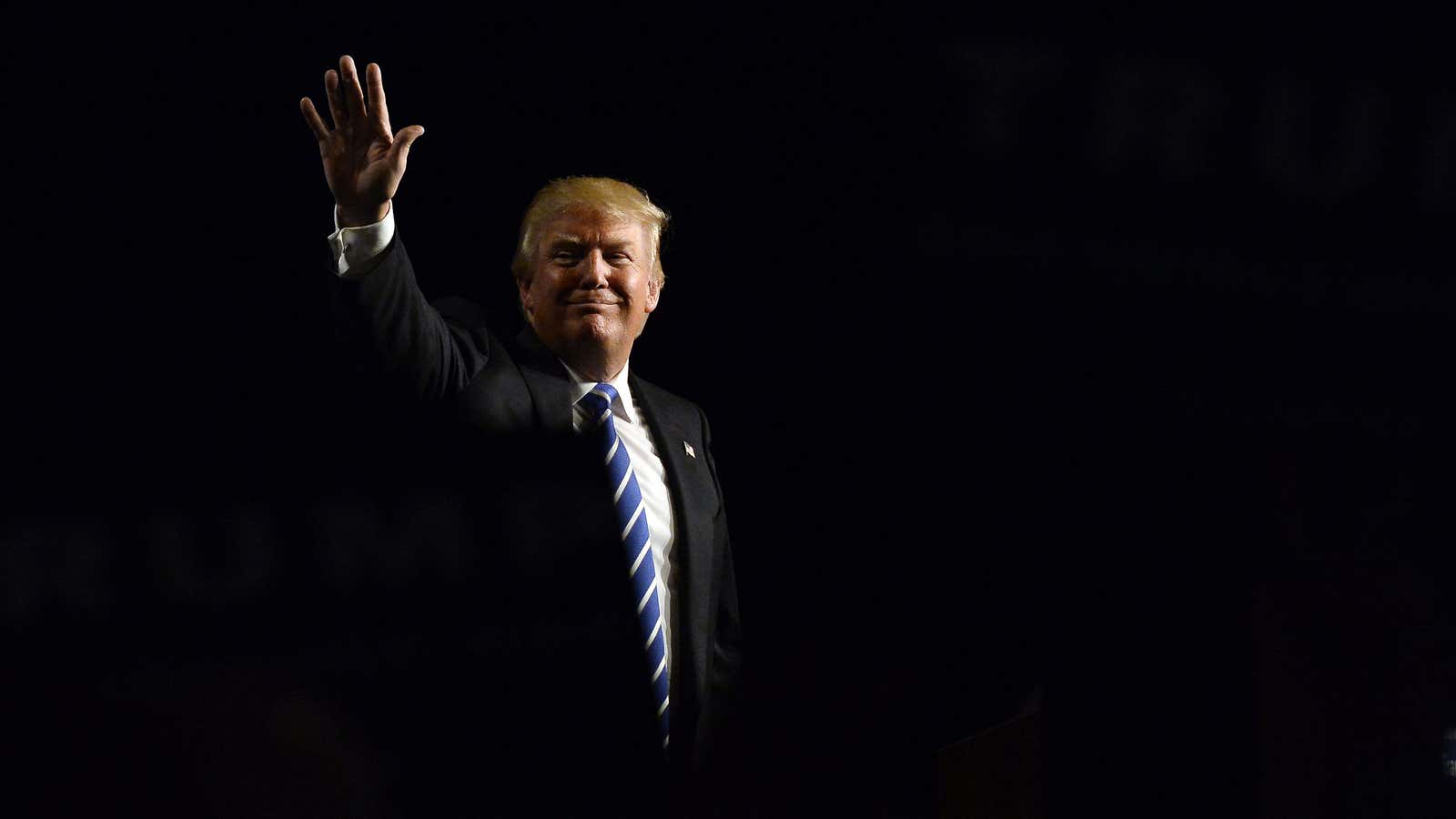The more outrageous he became, the more unassailable he got—until now. A Reuters/Ipsos poll released today (Nov. 27) shows Donald Trump losing 12 percentage points of support among Republican voters in less than a week, his biggest drop since he launched his campaign a little over five months ago.
It’s too early to say for sure that the Trump bandwagon has run out of steam, or even that it’s slowing down. There are many polls, which often conflict. More to the point, Trump has fallen out of first place in other polls a couple of times before, and each time he’s bounced back. In this latest poll, despite the drop, he remains well in the lead, with 31%—16 points ahead of his nearest rival, Ben Carson.
But in the past couple of weeks, Trump’s bigotry and lies have reached new levels. His proposal for tracking American Muslims, with its ugly historical echoes; his dissemination of racially incendiary and blatantly false statistics that originated from a neo-Nazi source; his defense of people who beat up a black protestor at one of his rallies; his mocking of a man’s physical disability, while insisting on his baseless claim that “thousands” of Muslims in New Jersey came out to celebrate the falling of the Twin Towers in 2001.
Each new outrage has set off the predictable tide of astonished news coverage. In the past, news coverage seems to have helped, rather than hurt, Trump. The media’s attempts to debate his policy proposals with him as if they were serious or to challenge him on the facts of his ludicrous claims have consistently made no dent in his momentum.
So could his latest excesses have finally have tipped the scales? Could all but Trump’s most hardcore supporters now think that, even if they secretly agree with him, he’s not electable? Or could the efforts of a “takedown team” formed by donors to some of Trump’s more moderate rivals be making themselves felt?
Perhaps, but we’ll need to wait for more polls to know. In the meantime, for those who despair at the moral bankruptcy of American political discourse that Trump’s success seems to represent, there is one consolation from polling whiz Nate Silver: Whatever the polls say, at this stage in the campaign, they still represent only a small fraction of voters’ likely intentions. Trump may yet recover from this knockdown, but it’s still a long way to the Iowa caucuses on Feb. 1, when the party nomination process starts in earnest—let alone to the White House.




